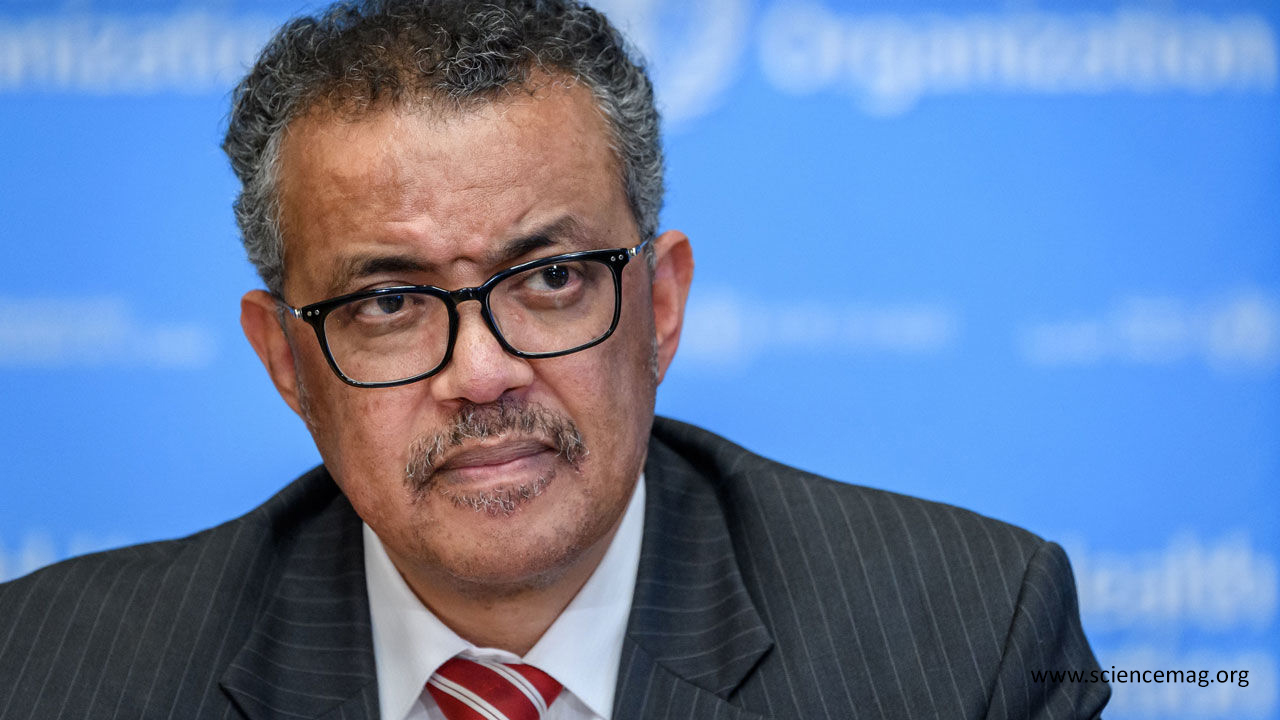The coronavirus pandemic is "a long way from being done" is as yet upsetting typical wellbeing administrations, particularly life-sparing inoculation for youngsters in the least fortunate nations, the leader of the World Health Organization (WHO) said on Monday.
The U.N. organization is worried about rising quantities of cases and passings in Africa, Eastern Europe, Latin America, and some Asian nations, even as the numbers smooth or decrease in some wealthier countries.
"We have a lengthy, difficult experience in front of us and a great deal of work to do," WHO Director-General Tedros Adhanom Ghebreyesus told a virtual news meeting in Geneva, including that the second influx of contaminations could be forestalled with the correct activities.
The epic coronavirus, which developed toward the end of last year in the focal Chinese city of Wuhan, has already contaminated 2.97 million and guaranteed 205,948 lives, as per the most recent Reuters count.
Tedros communicated worry that the soundness of kids was being undermined by the effect of the coronavirus crisis on inoculation programs for different ailments.
"Kids might be at moderately generally safe from serious malady and demise from COVID-19 - the respiratory ailment brought about by the novel coronavirus - however, can be at high hazard from different infections that can be forestalled with antibodies," said Tedros.
Somewhere in the range of 13 million individuals have been influenced worldwide by delays in ordinary immunizations against ailments including polio, measles, cholera, yellow fever, and meningitis, he said.
Deficiencies of immunizations against different maladies are being accounted for in 21 nations because of fringe limitations and interruptions to travel brought about by the coronavirus pandemic, Tedros stated, referring to the GAVI worldwide antibody partnership.
"The quantity of jungle fever cases in sub-Saharan Africa could twofold," he stated, alluding to the potential effect of COVID-19 on customary intestinal sickness administrations. "That doesn't need to occur, we are working with nations to help them."
WHO's top crises master Dr. Mike Ryan, got some information about some U.S. states lifting limitations despite an absence of contact-following and the administration's treatment of the emergency, said the United States appeared to have an "unmistakably spread out", science-based government plan for battling its coronavirus scourge.
"The government and the arrangement of governors are cooperating to move America and its kin through this exceptionally troublesome circumstance," Ryan said.
In any case, the government framework connecting 50 states made the circumstance "complex", he included.
Ryan likewise rehashed a prior WHO notice against facilitating limitations too early

 The UN agency is concerned about rising numbers of cases and deaths in Africa, Eastern Europe, Latin America and some Asian countries, even as the numbers flatten or decline in some wealthier nations
The UN agency is concerned about rising numbers of cases and deaths in Africa, Eastern Europe, Latin America and some Asian countries, even as the numbers flatten or decline in some wealthier nations







.jpeg)




.jpeg)






.jpeg)









.jpg)


.jpg)
